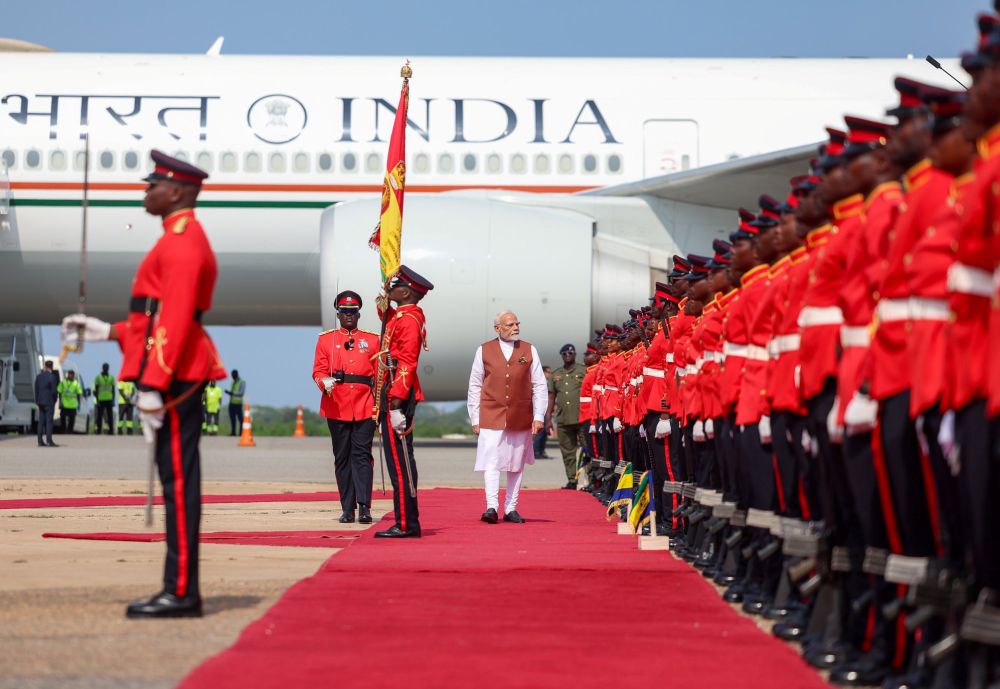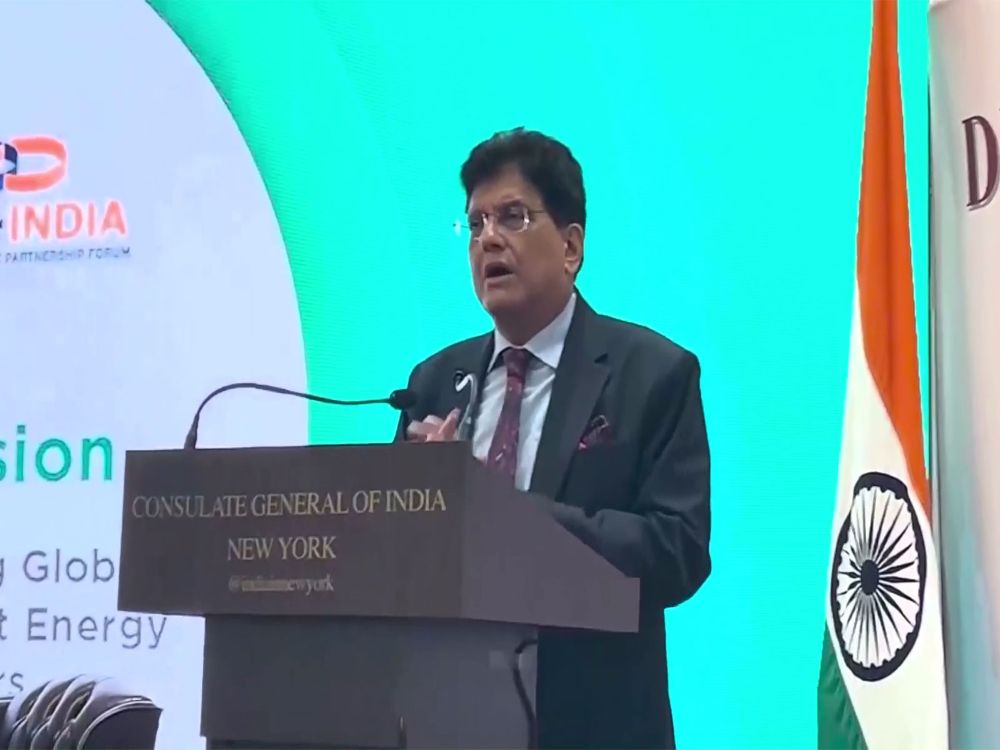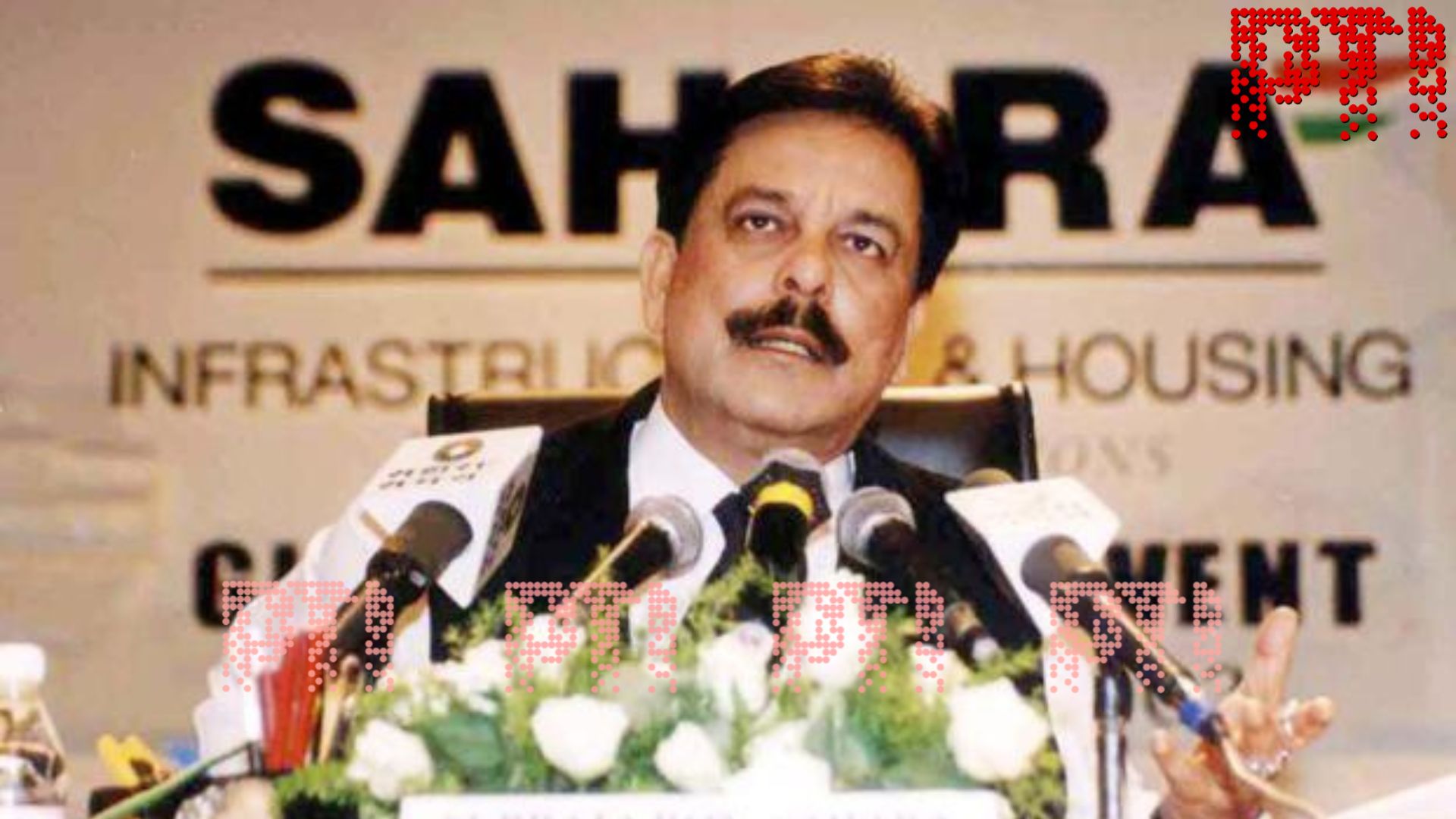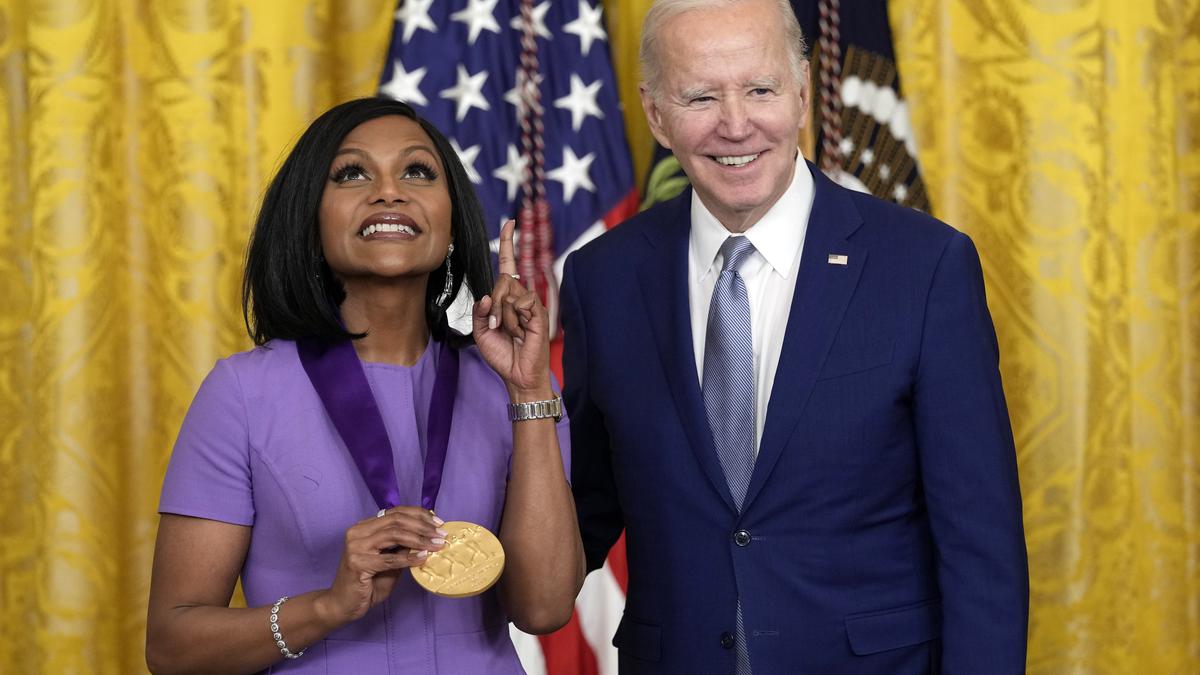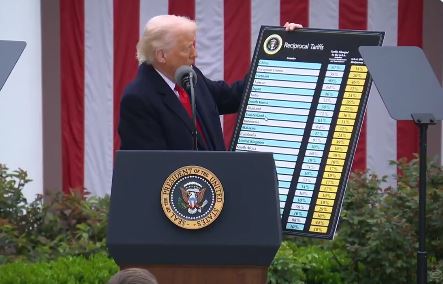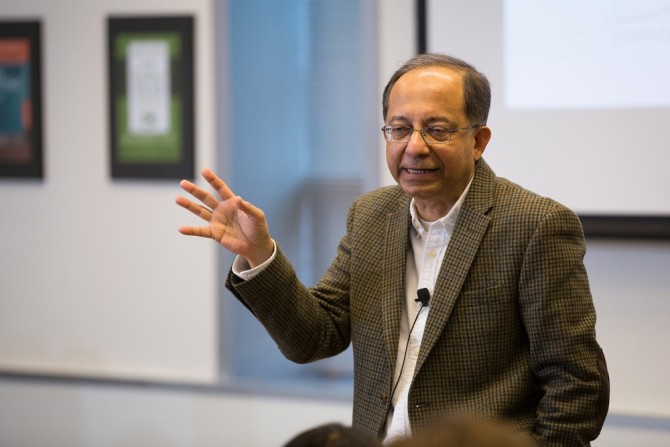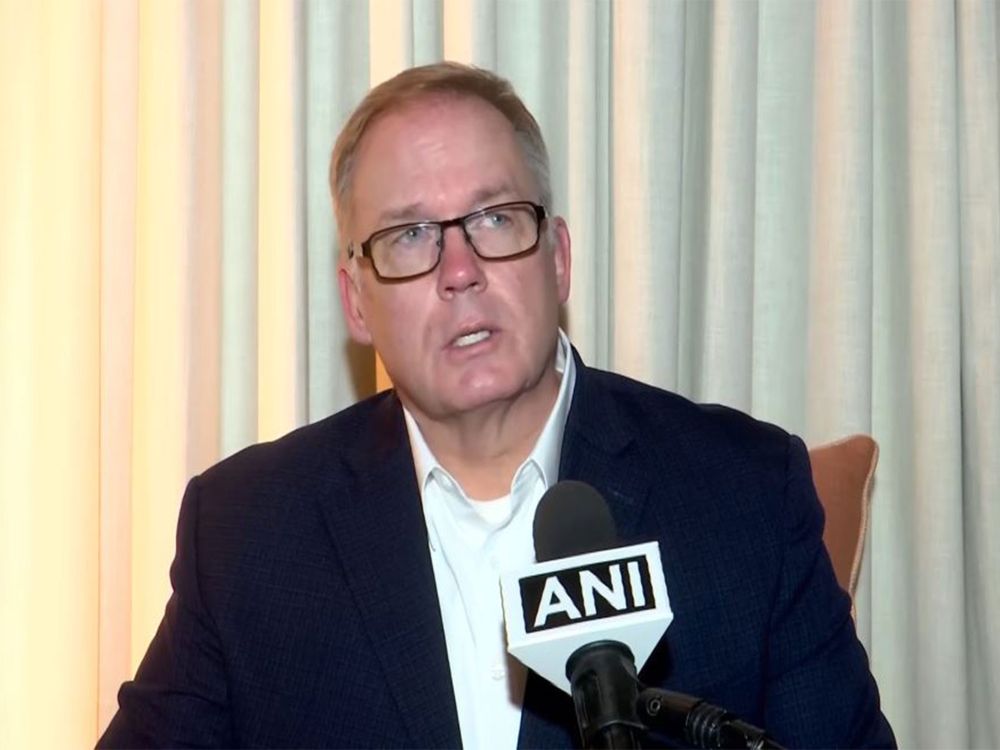German Chancellor Olaf Scholz’s visit to India coincides with the completion of one year of the Russia-Ukraine conflict and comes after the recent Chinese spy balloon episode that has created ripples in world geopolitics. Is a new partnership emerging?
Our Bureau
New Delhi/Berlin
German Chancellor Olaf Scholz’s visit to India on Saturday is the first standalone one by any German leader since the commencement of the Inter-Governmental Consultation (IGC) mechanism between the two countries in 2011. His visit coincides with the completion of one year of the Russia-Ukraine conflict and comes after the recent Chinese spy balloon episode that has created ripples in world geopolitics.
Chancellor Olaf Scholz is paying a State visit to India from February 25-26. He is accompanied by senior officials and a high-powered business delegation. He arrived in New Delhi on February 25th and proceeded to Bengaluru on February 26th.
Chancellor Scholz was accorded a ceremonial welcome at the forecourt of Rastafari Bhavan. Prime Minister and Chancellor held discussions on bilateral, regional and global issues. The two leaders also interacted with CEOs and business leaders of both sides.
Many things, including economic cooperation, the Green and Sustainable Development Partnership (GSDP) and Indo-Pacific were on the agenda when he met Prime Minister Narendra Modi. The IGC is a whole-of-government mechanism which brings together ministers and officials from both sides, who hold discussions in their domain areas and then report on the discussions during a plenary session chaired by Modi and Scholz.
The Chancellor’s visit came after a year of renewed engagement between India and Germany. PM Modi and Chancellor Scholz met on three occasions in 2022: For the 6th India-Germany Inter-Governmental Consultations (May 2, 2022) when PM visited Berlin, with his delegation (Finance Minister, EAM, NSA, MOS (I/C) DST and Secretary DPIIT); Chancellor invited PM for the G7 Summit held under German Presidency in June 2022 in Schloss Elmau, Bavaria, for which India was a partner country and the two leaders interacted on the sidelines of the G20 Summit held in Bali in November 2022.
India and Germany share a strong economic partnership. Germany is India’s largest trade partner in the European Union and has consistently been among India’s top 10 global trade partners. It is also one of the largest foreign direct investors in India.
As a symbol of close economic ties and the strong potential for enhanced cooperation, Chancellor Scholz was accompanied by a high-powered business delegation. During the visit, Modi and Scholz also addressed a Business Roundtable, comprising top industry leaders from both sides.
Russia-Ukraine conflict and China were “high on agenda” of Chancellor Olaf Scholz’s first bilateral visit to India, since taking the charge, German envoy Philipp Ackermann said here on Wednesday.
Stating that ‘geopolitics’ was the key element of Chancellor Scholz’s talk with Prime Minister Narendra Modi, the envoy said that there is an ample opportunity to discuss the difficult international environment where “we see India as a very influential and extremely valuable partner” in discussing these questions. “But I think it shouldn’t be restricted to that. Your northern neighbor China certainly be on the agenda. Everything which is linked Indo-Pacific will be on the agenda and I think that there is an ample opportunity to discuss a very difficult international environment where we see India as a very influential and extremely valuable partner in discussing these questions”, added the German envoy in an interview ahead of the visit.
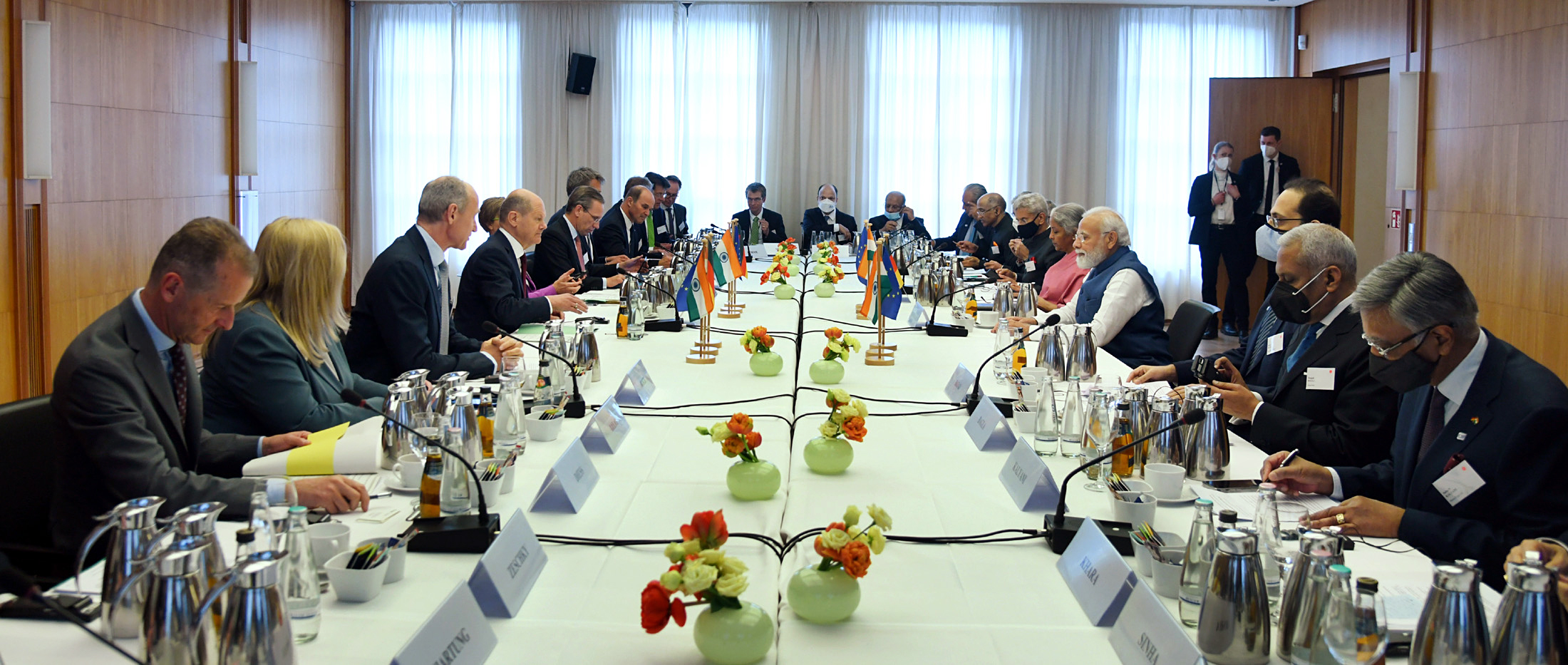
Speaking about the Russia-Ukraine conflict and answering about if Europe has reached out to Putin ever to stop the war, the envoy said that there is not regular but uninterrupted communication between Kremlin and some European capitals.
“The Chancellor is every now and then on the telephone with Putin. And so is the French President Emmanuel Macron. I would not say very regular but uninterrupted communication between the Kremlin and some European capitals. We have to be honest. This communication so far has delivered basically nothing. But I think we believe in diplomacy and we believe that at the end of the day, this crisis must be solved diplomatically but it must be solved in a way both sides can accept it,” he said.
“We will continue to help Ukraine to defend its territory. It’s clear that our aim is to sustain the international order that comprises the safety of borders. It is unacceptable that a country just moves into other countries”, he added.
On India buying Russian oil, the ambassador stressed the fact that “India buying oil from Russia is none of our business. That’s something that the Indian Government decides and as you get it at a very low price.”
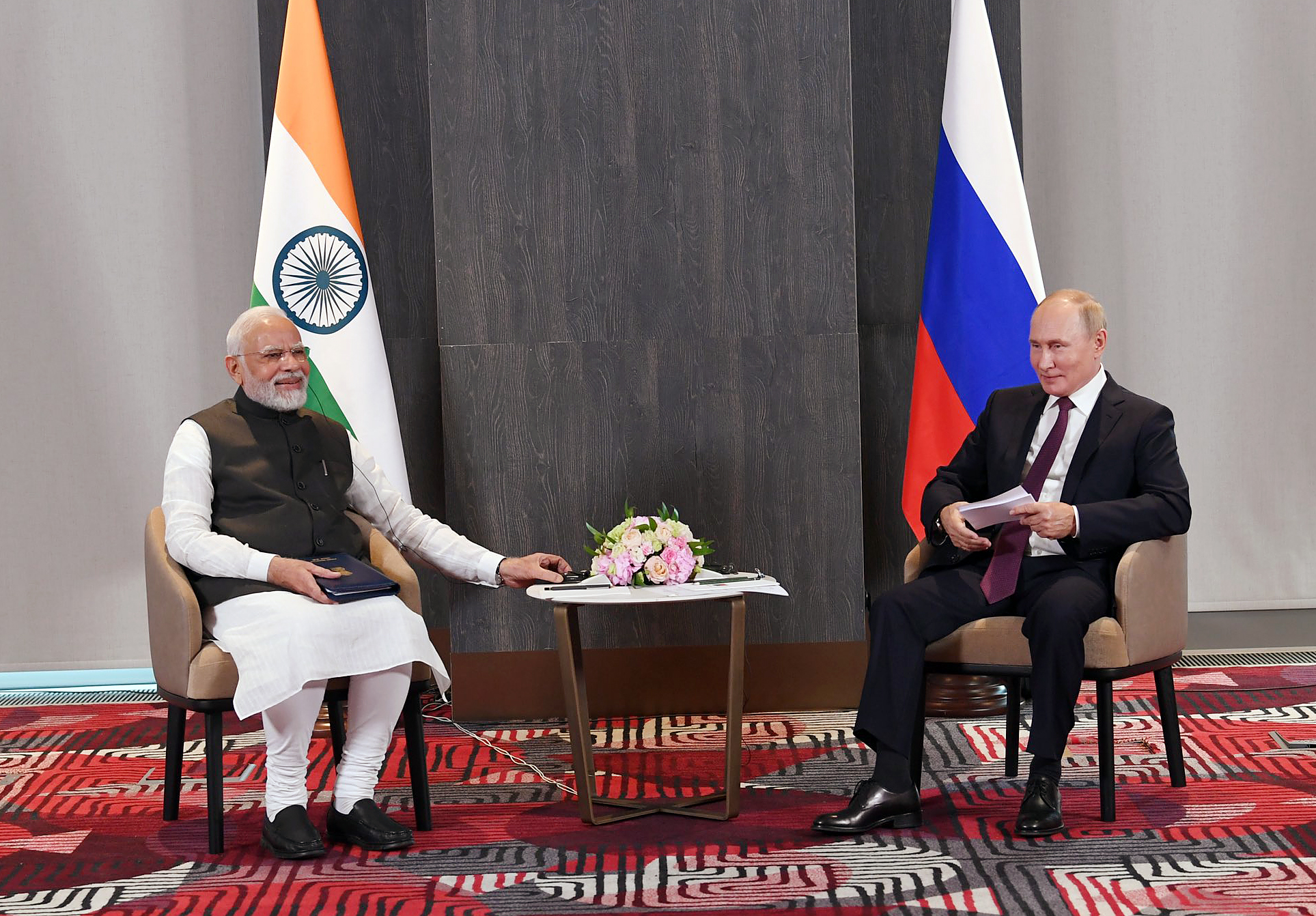
India buying Russian oil is none of our business, says German ambassador
India buying oil from Russia is “none of our business” German Ambassador to India Dr Philipp Ackermann said on Wednesday and noted that the decision on purchase is that of the Indian government.
The German Ambassador also said that India is a very appropriate candidate at some stage to come up with a solution to the Russia-Ukraine conflict but the stage is not now. “India buying oil from Russia is none of our business basically. That’s something which the Indian Government decides and as you get it at a very low price, I cannot blame any government who buys it,” Ackermann said in response to queries at a press conference about the upcoming visit of German Chancellor Olaf Scholz to India on February 25 and 26.
“But we would like to see some Indian engagement at some stage. India is very appropriate candidate at some stage may be to come up with some solution. But I don’t think this is the time now. I say this with all due caution because we have listened to what Putin said yesterday. When you want to find a solution to the conflict, you need two parties to be prepared to find this solution,” he added.
He referred to President Putin’s remarks at Russia’s Federal assembly.
“What we heard yesterday, Putin said…he didn’t mention the word – negotiation or peace, one single time. India has very, very skilled diplomacy, very good diplomacy, if they want to step up, they will have to find a good moment to step up. What I can say is the moment is not now,” the German envoy added.
Russian President Vladimir Putin on Tuesday said that Moscow wanted to solve the conflict in Ukraine but the Western countries had prepared a “different scenario” behind its back, Reuters reported.
“We were doing everything possible to solve this problem peacefully, negotiating a peaceful way out of this difficult conflict, but behind our backs, a very different scenario was being prepared,” Putin said while addressing the federal assembly.
Speaking about Germany’s efforts to find a solution to the war, he said German Chancellor is every now and then on the telephone with Putin.
“There’s uninterrupted communication between the Kremlin and some European capitals. We have to be honest, this communication has delivered nothing, but we believe the Ukraine crisis must be resolved diplomatically,” he said.
Ackermann said Germany “will continue to help Ukraine to defend its territory”.
“The Russian side is surprised by the unity and strategic patience of the West. It is important to sustain the international order. Our position on Crimea is clear too. It is an integral part of Ukraine,” he said.
The envoy said while the Ukraine crisis will figure in the German leader’s talks with Prime Minister Narendra Modi, there will be a focus on strengthening business ties. “India is growing” and there are many “business opportunities”, he said and noted that there are around 30 CEOs in the German delegation.
“We see Russia and Ukraine very high on agenda during the meeting between German Chancellor Scholz and PM Modi. Recently, we have seen US President Biden in Ukraine. The Indo-Pacific will be on their meeting agenda too,” Ackermann said.
He also talked about the potential of the Free Trade Agreement in boosting trade ties.
“A Free Trade Agreement (FTA) with India will increase our business here in a substantive way. German businesses are very interested in getting an FTA done between Germany and India,” he said.



















